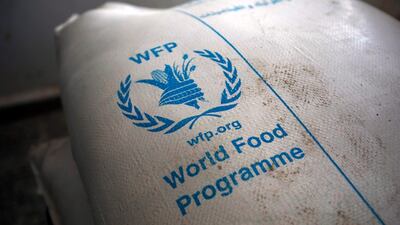Last week, it was discovered that Yemen's Iran-backed Houthi rebels had blocked half the aid coming in to the country from the United Nations' programmes. This was the Houthis' attempt to gain leverage over the UN humanitarian efforts inside areas they control. The rebel group has been accused of siphoning off billions of dollars allocated to local governing bodies. In the ongoing civil war, this exacerbates one of the world's worst humanitarian crises.
On Sunday, Dr Anwar Gargash, the UAE Minister of State for Foreign Affairs, said he was "deeply concerned global attention to Yemen crisis is not keeping pace with urgent need for successful political process". The situation is indeed dire: according to the UN Refugee Agency, 80 per cent of the population needs some form of humanitarian assistance, half of it is on the brink of starvation, and more than one million cases of cholera have been reported since 2018. With millions of lives at stake, the international community must help pull the people of Yemen out of this humanitarian catastrophe, which has been exploited by the rebels.
During the nearly six years of conflict, the Houthis have committed egregious crimes, ranging from torture, kidnap and rape of citizens to indiscriminate bombing of cities. They have also used increasingly sophisticated drones and long-range ballistic missiles to strike populated areas across the border in Saudi Arabia. While they should be held accountable for such brutalities, it is just as important to focus on their use of strong-arm tactics, which do not necessarily involve guns, bombs or drones, but are much deadlier and have consequences that are more lasting.
For instance, as part of its efforts to control the distribution of supplies from ports such as Hodeidah, the rebels recently decided to impose a two per cent levy on all the aid being distributed in the country. Seen as a tax intended to fund their war effort, aid agencies refused to oblige, forcing the rebels to backtrack earlier this month. According to one UN official, nearly 300,000 pregnant and nursing mothers and children were denied nutrition supplements for more than six months, only because the Houthis "held beneficiaries hostage to the two per cent" demand, as reported by the Associated Press. Meanwhile, the rebels have been pushing back against UN efforts to better regulate the monitoring of funds.
The latest effort to hinder aid programmes, which among other things feed Yemen’s near-starving population, would be devastating for ordinary citizens. By placing conditions, such as who receives aid, before granting aid agencies access to areas under its control – conditions that these agencies are undoubtedly right to reject – the Houthis are essentially denying millions of Yemenis essentials like food, medical care and clothing. More than two million beneficiaries have already been directly affected by the Houthis’ latest act of cruelty. And it is impossible to tell how much worse the situation could get if donor countries such as the US, UK and Australia withhold aid, as their governments have threatened to do – and justifiably so, given the risk of billions of dollars being appropriated by the rebels.
Dr Gargash is right in urging all stakeholders, including NGOs, to work together. The world must also realise that Yemen needs, as the UAE minister of state said, its “continued attention”. A genuine international conversation will serve as an important first step towards finding solutions to save lives.

